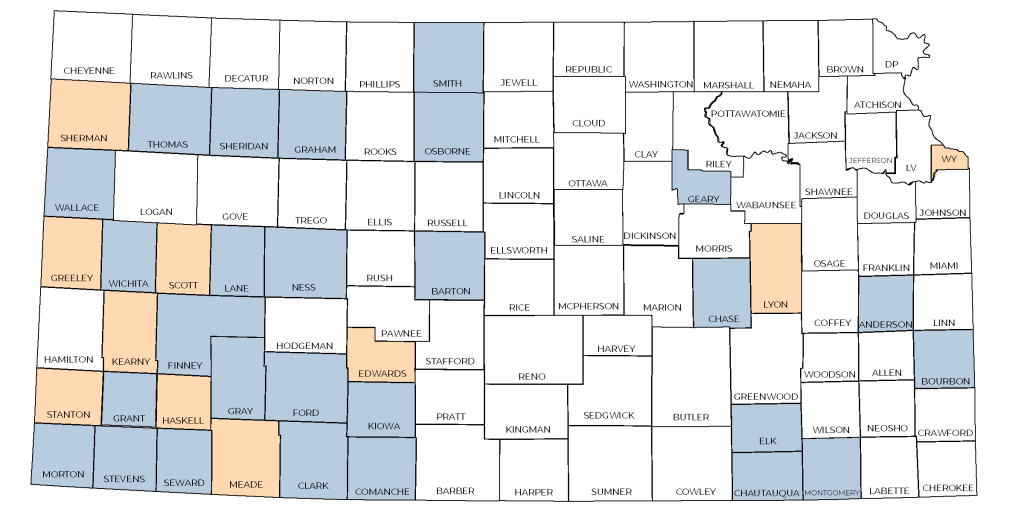The Issue
Child Care Aware of Kansas is pleased to share that in 2023, we saw an overall increase in number of child care programs in the state of Kansas. However, the total number of children that are served by these programs has increased by less than 1%. CCAKS believes that the lack of a greater increase in children served is due to a combination of staffing shortages amongst child care providers, low wages for providers, and providers’ limited ability to accept infants into their programs.
Because of these issues which prevent a greater increase in the service of the children and families of Kansas, CCAKS proposes an expansion of their existing Baby Steps program.

Current Framework and Recommendations
Baby Steps is a program employed by CCAKS that provides a quarterly stipend to providers that fill child care slots in their programs with one or more infants, as well as provide child care educators with an hourly income of approximately $15.
A Focus on Quality
Baby Steps also connects participating family child care programs with Kansas’ Infant Toddler Specialist Network (ITSN), ensuring they are equipped to provide safe, high-quality care. A provider in the program shared that ITSN has helped them “improve their education and knowledge as well as increase confidence.”

A Look Toward the Future
This program is currently utilized by 70 providers in the state of Kansas, but CCAKS desires to increase the total number of providers using Baby Steps to 102. This would ensure a minimum of 102 infant slots in child care programs across the state.
CCAKS plans to prioritize child care providers that live in communities with high scores on the Social Vulnerability Index, where the desired capacity of child care slots meets potential demand, where the number of enrolled infants in existing programs are less than 3, and where the 2019-2020 birth rate occurred at a higher rate per 1,000 population.
At present, children are considered to be infants until they are 12 months of age, and as child care providers typically adjust their competitive rates to reflect the age of the children they care for, providers are less likely to take on infants in their programs. CCAKS has found that through the financial support provided by Baby Steps, providers are able to care for a greater number of infants.
The expansion of this program would allow for a greater number of infants to receive care and for families to receive more convenient access to safe, high-quality child care.
Evidence Based Results
Based on the evidence gathered by Child Care Aware of Kansas during the yearlong pilot, 66% of the counties that participated in Baby Steps saw an increase in infant care from January 2022 to April 2024. With an overall increase of nearly 7% more infants being cared for in the selected counties.
Since March of 2023 more than $2.1 million has been put in the hands of providers to help offset the loss of wages, helping retain more than 97% of the providers that were enrolled in the program and increase more than 150 infant slots.
In conclusion, the Baby Steps program has been successful in locations where it has been implemented, and CCAKS seeks to continue to grow this success and serve the child care needs of families with infants in the state of Kansas by expanding the program to include more providers.
Baby Steps is made possible by generous support from The Patterson Family Foundation, with evaluation and technical assistance provided by The University of Kansas – Center for Public Partnerships and Research.
-

Child Care Aware of Kansas
Child Care Aware of Kansas connects everyone with a stake in child care — parents, child care providers, businesses, local and state leaders, and community members — to the information and ideas they need to take action. We provide opportunities, connections, and support for Kansans to envision what a better child care system can look like for them. Working within a network of Child Care Resource & Referral agencies, we also connect caregivers and providers to the information and support they need.







